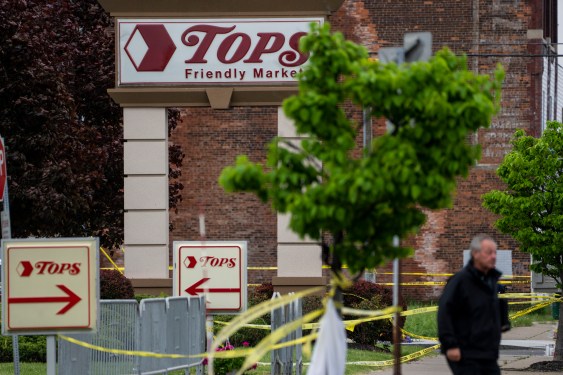Introduction
In the wake of yet another mass shooting in the United States, questions are being raised about the role social media companies play in amplifying extremism and violence. The latest incident, which left 10 people dead in Buffalo, New York, has sparked renewed calls for greater responsibility from these platforms.
The Live Streamed Violence
The gunman responsible for the massacre livestreamed the violence on Twitch, opting for this platform over Facebook due to its lack of login requirements. This decision highlights the ease with which extremists can broadcast their actions online. The video was removed by Twitch within minutes, but not before it had been copied and uploaded elsewhere.
Social Media Platforms and Extremism
Social media platforms have grappled with mass shootings for years now, employing a combination of AI and human moderators to detect and remove viral content. However, these systems can still fail to stop the spread of extremist ideologies when it counts.
The Problem of 4chan and Discord
The alleged shooter was linked to a manifesto and Discord messages in which he described being radicalized on 4chan, an online forum notorious for its lack of content moderation and extremist views. He also spent time documenting his plans in a private Discord server, raising difficult questions about where platforms should draw the line at moderating private spaces.
New York Governor Calls for Greater Moderation
In an interview with NPR, New York Governor Kathy Hochul called on social media companies to monitor content more aggressively to intercept extremists. Hochul proposed a ‘trigger system’ that would alert law enforcement when social media users express a desire to harm others.
"This is all telegraphed," Hochul said. "It was written out in a manifesto that was published on social media platforms. The information was there."
The Difficulty of Policing Private Spaces
While the alleged shooter’s plans were shared privately on a messaging app and published openly to a website known for refusing to moderate content, many have pointed out that the ‘virus’ described by Hochul is already here. The ideology behind the Buffalo shooting – ‘the great replacement’ – was once a fringe belief espoused by white supremacists but has now become more mainstream.
The Limitations of Algorithms
No algorithm can deliver us from the violence inspired by these ideologies, as they are now easily accessible on cable news and in Congress. Facebook’s policy on white supremacy plays right into this racist agenda, making it even harder to combat extremism online.
A Complex Problem Requires a Multi-Faceted Solution
Combating extremist ideologies requires more than just better moderation systems or algorithms. It demands a nuanced approach that takes into account the complex interplay between social media platforms, online culture, and real-world violence.
Conclusion
As we grapple with the aftermath of yet another mass shooting, it’s clear that social media companies bear some responsibility for amplifying extremism and violence. By understanding the complexities of this issue and working towards a more comprehensive solution, we can begin to mitigate the harm caused by these platforms.
Related Articles
- OpenAI is trying to extend human life, with help from a longevity startup
- Big Tech expands its reach with new startup acquisitions and investments
- Instagram Reels adds new features as TikTok is banned in the U.S.
Stay Informed
Subscribe to our newsletters for the latest updates on tech news, startups, and innovations:
- TechCrunch Daily News: Every weekday and Sunday, get the best of TechCrunch’s coverage.
- TechCrunch AI: Our experts cover the latest news in the fast-moving field of artificial intelligence.
- Startups Weekly: Get our best coverage delivered weekly.

